Ants can choose to live in your houseplants and outdoor plants in pots for several reasons. As with many households, it is not in our best interest to keep ant populations in pots for a long time.
Listed below are reasons why plants are drawn to your potted plants and what you can do to manage their number in your home.
- Related article: Ants in Houseplants
Why Do Ants Get Into Potted Plants?
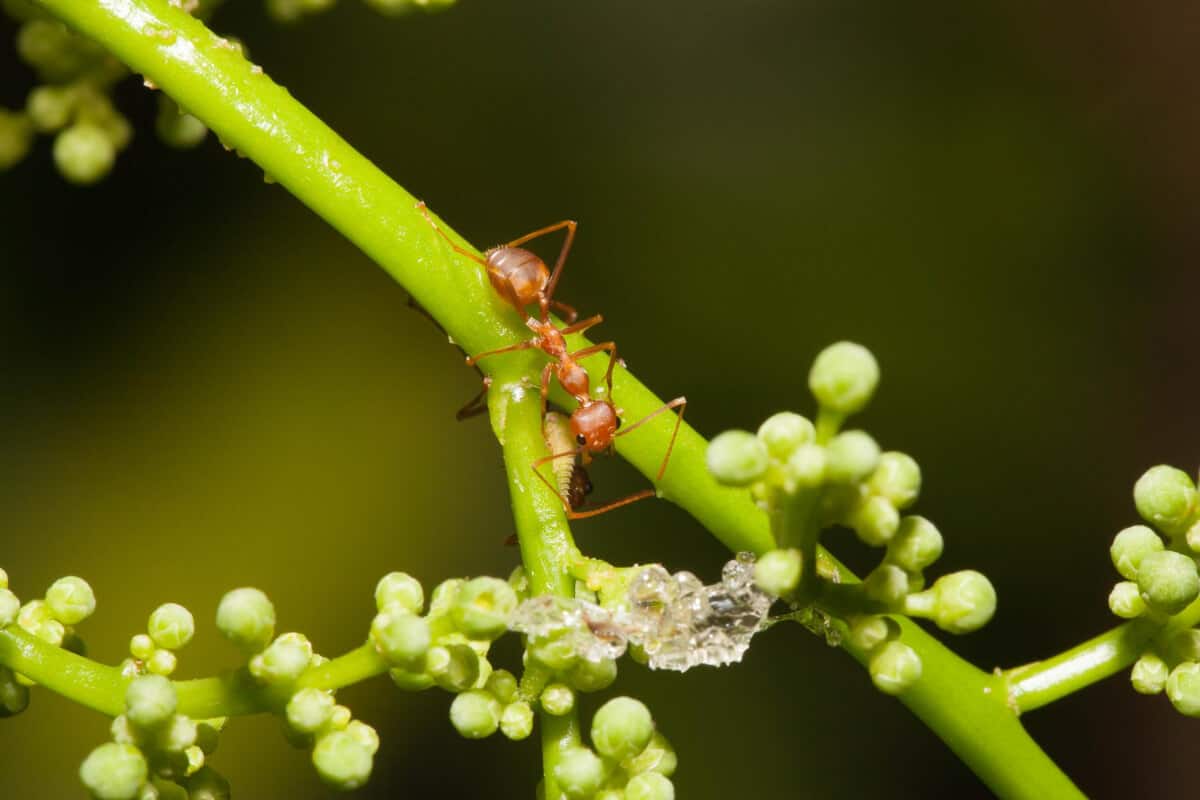
1. Pots Are Great Nests
As a natural way of coping, ants look for a shelter that can provide them with warmth. Potted plants make for great nests as they are able to provide nutrients from both the plant and the soil.
2. Aphids and Other Insects
These creatures are naturally drawn to food. So if you see an alarming number of ants, try checking if a food source is present such as tiny insects of which they are predators.
An insect that they are huge fans of is the aphid. These creatures are tiny, sap-sucking insects that are difficult to see, but ants can easily find them.
Aphids are the favorite snacks of ants, as they excrete honeydew, a very sweet substance that ants consume due to its high energy content.
Ants actually go as far as protecting aphids from their predators and farming them. In the long run, this can severely weaken your plans and open the way to parasites and molds.
3. Food Crumbs and Sweets
Another thing to tick off is the presence of food crumbs and sweets. These are eye candy to ants and they might detour on your potted plants along the way.
4. Too Wet or Too Dry Soil
One thing to keep in mind is that ants build their colonies on dry soil. That means that if the soil in your pots is not very moist, it could attract them. Refrain from using hydrophobic soil or those whose particles repel water as well.
On the other hand, if the weather has been very dry, ants will be thirsty and they might come looking for water in your watered plant pots. They actually have the ability to smell water from a distance.
An effective option then is to water your plants just the right amount, without leaving too much in the saucers.
5. Location
You might also want to consider taking one of the top floors in your building if you are fond of foliage. This is because location can also increase the likelihood of having ants in your pot plants.
Your plants are exposed to a higher risk of ant infestation on the ground floor just because you are nearer to the earth.
This is especially true if you have some cracks in your walls or door frames from which ants can easily gain access.
How to Get Rid of Ants in Potted Plants
1. Essential Oils
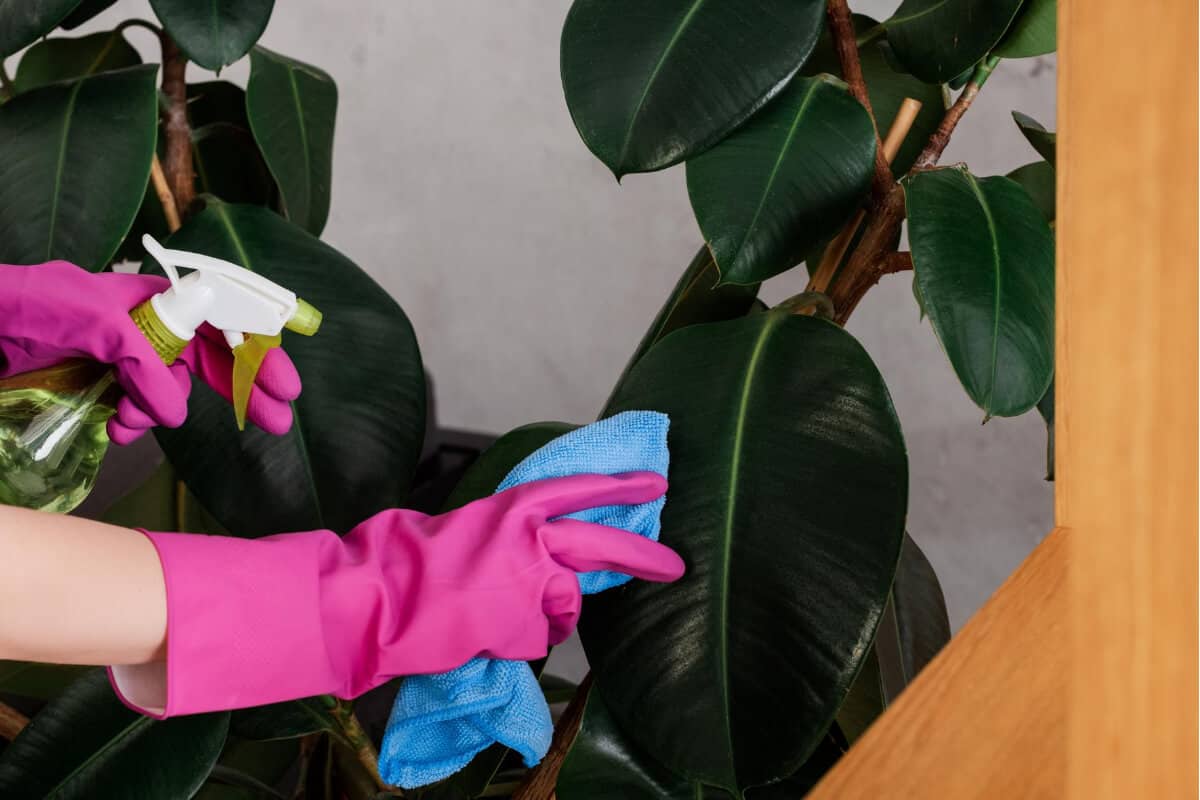
An easy, natural, and pleasant way to get rid of ants in your pots is through essential oils.
Choose essential oils that contain citrus scents except for orange. You can also pick those with lavender, yarrow, citronella, or thyme. Peppermint oil and cinnamon oil are also good choices. These work best in battling ants.
Essential oils are highly concentrated so use a few drops at a time and dilute it with warm water. Place the mixture in a clean spray bottle and use it on plants, the soil, and flower pot exteriors.
This method doesn’t cause any harm to your plants, or to children and pets.
2. Insecticidal Soap
This method will take care of the entire ant colony. To use insecticidal soap, you will need to mix it with ant bait.
In order to do this you can simply use some sugar or a spoon with a few drops of honey. Ants love sweet food, so if you take care of placing the bait along ant trails, they will surely find it quickly.
These ants will then take most of that food back to the nest and kill the queen. After which, whole colony shuts down as well.
You can also submerge the whole pot in a mixture of water and insecticidal soap to get rid of all the ants in one go. Just remember to flush the mixture out with fresh water right after to remove the soap solution.
3. Repotting the Plants
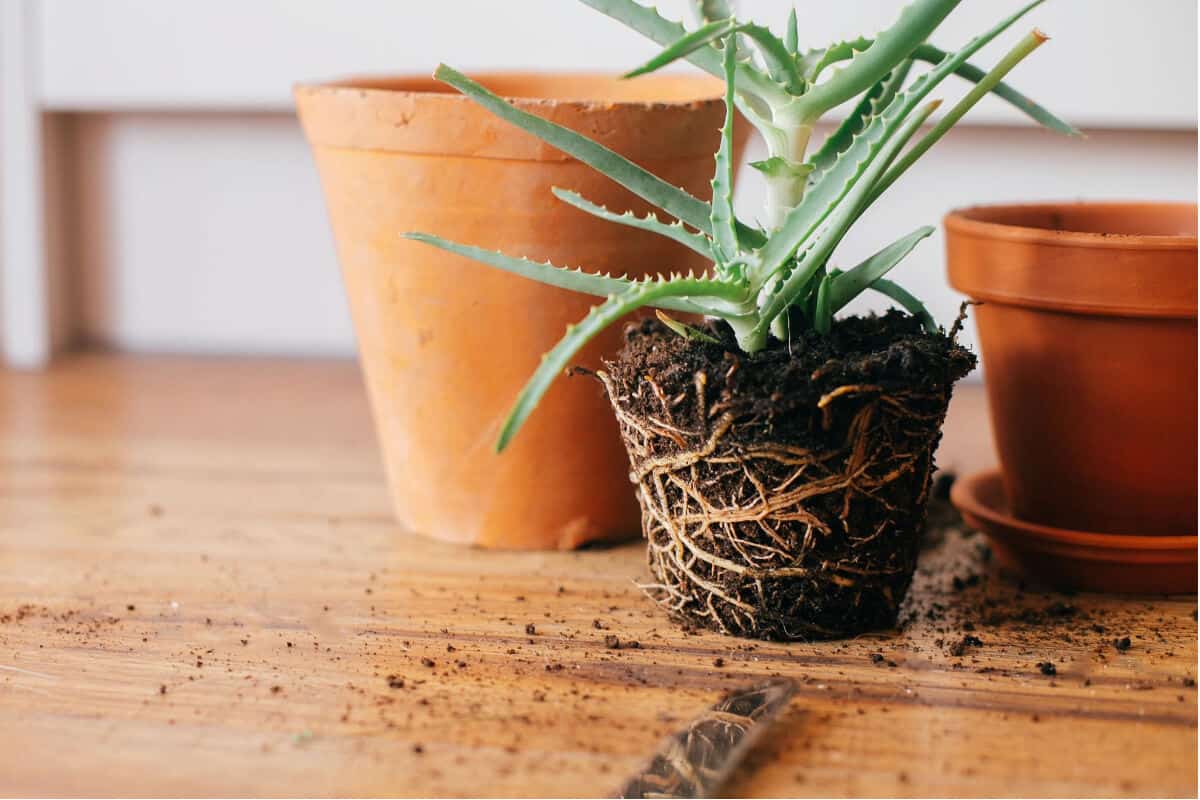
What is going on internally with your plants will not always be caught by the naked eye. So if you see ants in or around your plants, it might be a good indication of something amiss.
For one, your plant might be hosting other insects or there might be rotten plant roots due to fungal infection, which ants can feed on.
Simply moving your plant into a new pot with fresh potting soil might do the trick.
If you notice predators, it’s best to change most of the soil. If you see signs of an infection, you can also sterilize it naturally.
Using some activated charcoal is an excellent way to take care of unwanted fungi. This method has the advantage of being a long-term solution and also disposing of other problems that could endanger your plants.
4. Food-Grade Diatomaceous Earth
This powder made from fossilized algae is a great ant repellent. It will need to be placed by ant trails and nests. It should be fine for indoor use since it doesn’t have any adverse effects on humans or plants.
Moreover, diatomaceous earth is effective against many insects, not just ants. This might be the right solution if you also have a cockroach problem as well.
Diatomaceous earth works by dehydrating the insects. It’s slower than other methods, but effective nonetheless.
Take care of choosing food-grade diatomaceous earth for these purposes and keeping it dry, as otherwise, it won’t be as effective.
5. Chemical Insect Repellant
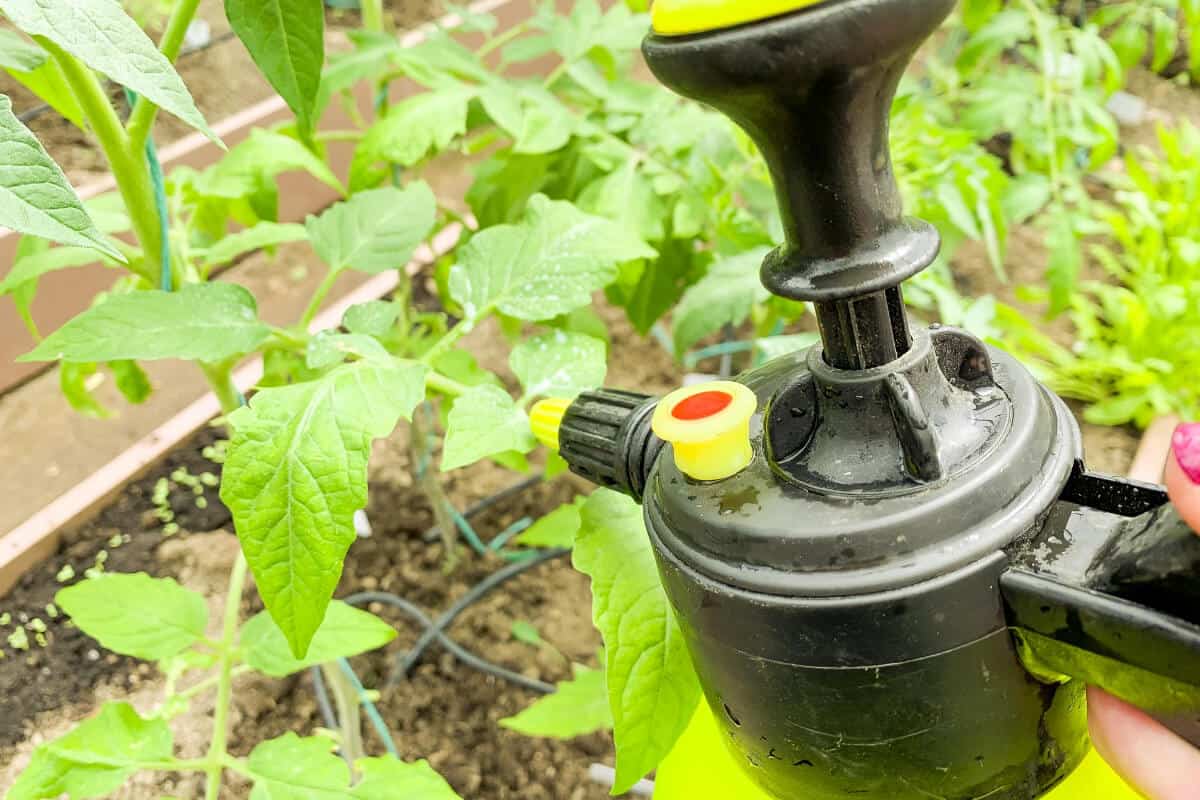
If you have run out of natural solutions and the ant population in your potted plants is alarming, you can try using a chemical insect repellant. Choose one with N-Diethyl-meta-toluamide, also called DEET or diethyltoluamide.
Directions for use are usually indicated on the packaging. But oftentimes, the ratio is just a spoonful of insect repellent in a medium-sized spray bottle with water.
This insecticide spray will need to be shaken well and sprayed on the plant.
While effective, these products are slightly toxic. Children and pets are especially vulnerable to them and they could suffer from nausea and vomiting.
Additionally, certain chemical sprays can damage your plants, as they also affect fungi. Some fungi are beneficial to plants and help them thrive better.
Only go with this option when you have exhausted the more natural ones.
How to Keep Ants Out of Plant Pots
1. Lemon or Vinegar
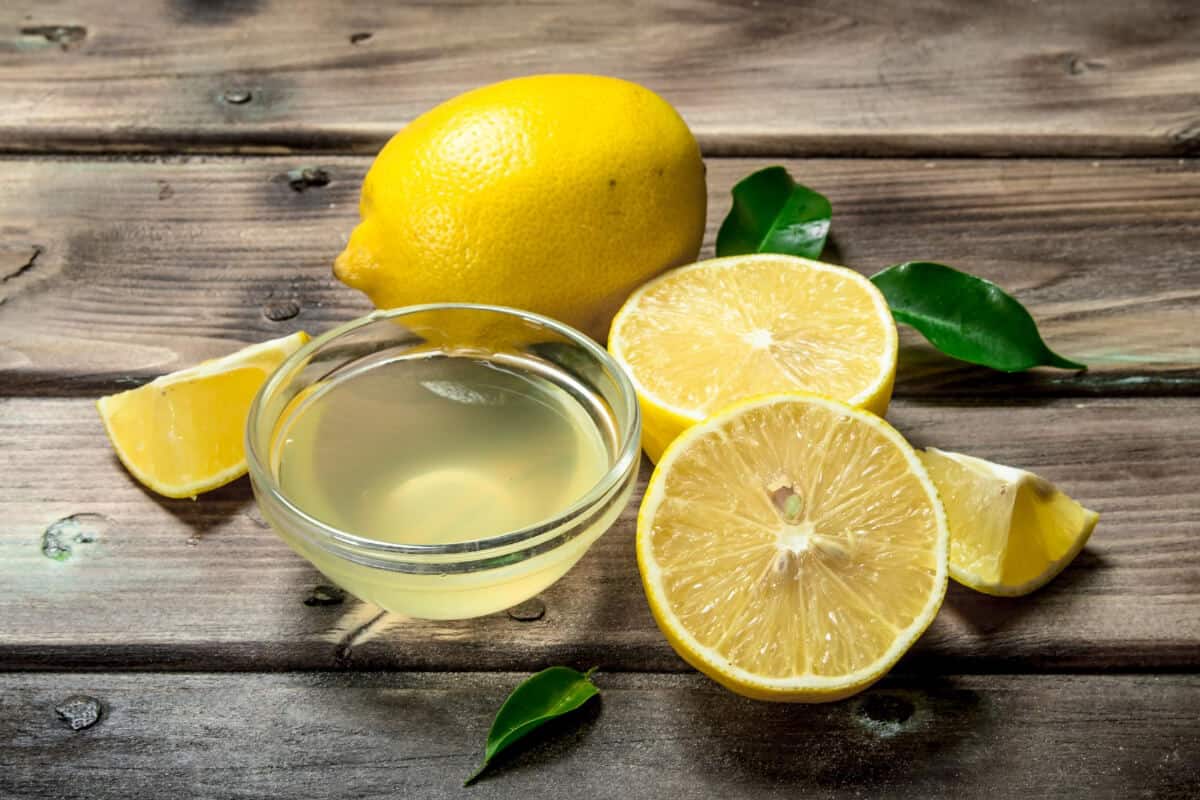
Ants love sweet foods just as much as they hate acidic ones. You can use lemon juice, lemon essential oil, or even vinegar.
Simply spray some lemon juice or vinegar on the trails where you see ants coming. As they smell it, they will keep away.
This is more of a preventive approach, however. If you do this when the ants are already inside the pot, you will only make matters worse by trapping them there.
You can also place lemon juice directly in the saucer.
This cannot always be done though, as some plants cannot stand high acidity levels. If your plants are acidophilic, go ahead. Otherwise, just spray the outside of the pot.
Some examples of plants that love high or medium acidity levels are Azaleas, Caladiums, Japanese Iris, and most succulents.
2. Keep Your House and Cupboards Free of Food
Ants are attracted by crumbs and other food scraps. If you make sure not to leave anything that they can eat lying around the house, they will leave your house and your plants alone.
Also, make sure of washing the dishes straight away and avoid leaving any leftovers out of the refrigerator.
3. Sprinkle Spices Around the Pots
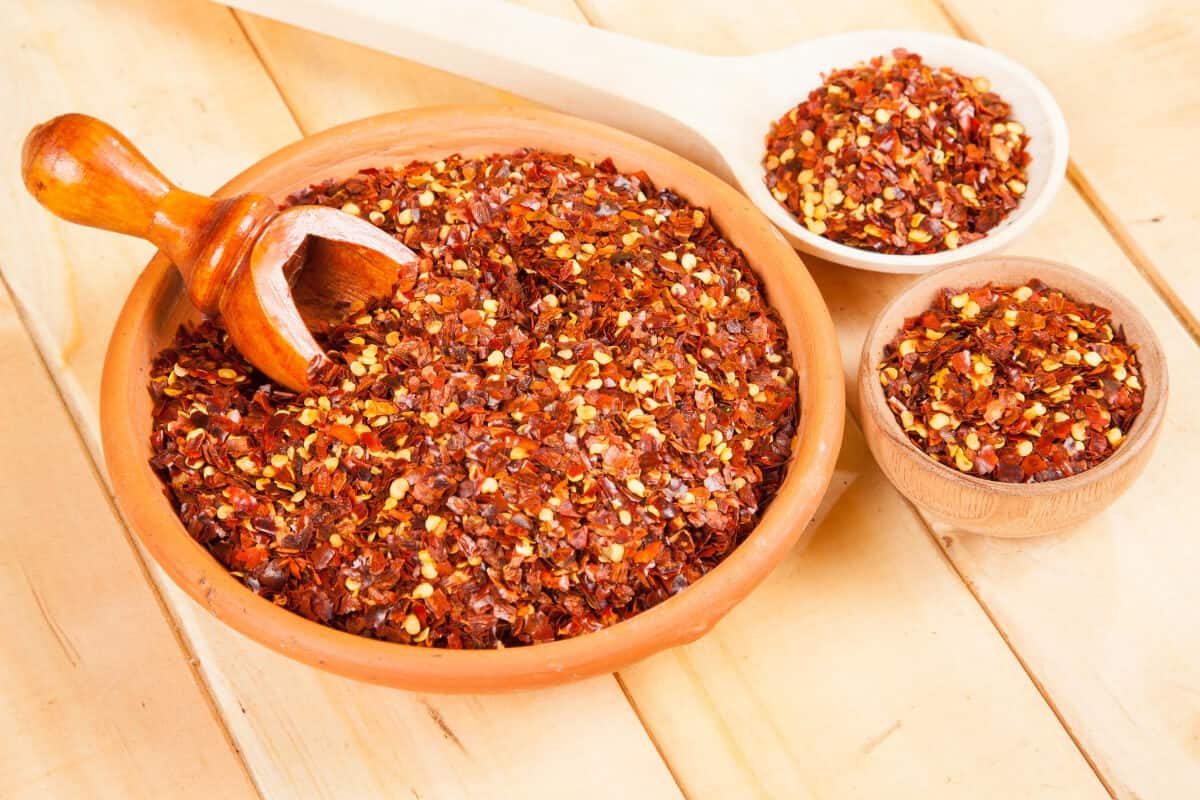
This is a natural method that repels ants without killing them. Cayenne pepper and cinnamon are both very effective, as ants don’t like these flavors.
Cinnamon sticks will last much longer than ground cinnamon. You can place the sticks directly in the clean soil of your potted plant for maximum effect.
Coffee grounds also work, as well as citrus rind.
4. Get Rid of Aphids
Again, without a food source, ants will most likely stay away. If you take care of the aphid colony in your garden, ants will be less attracted to your potted plants.
5. Plant Marigolds
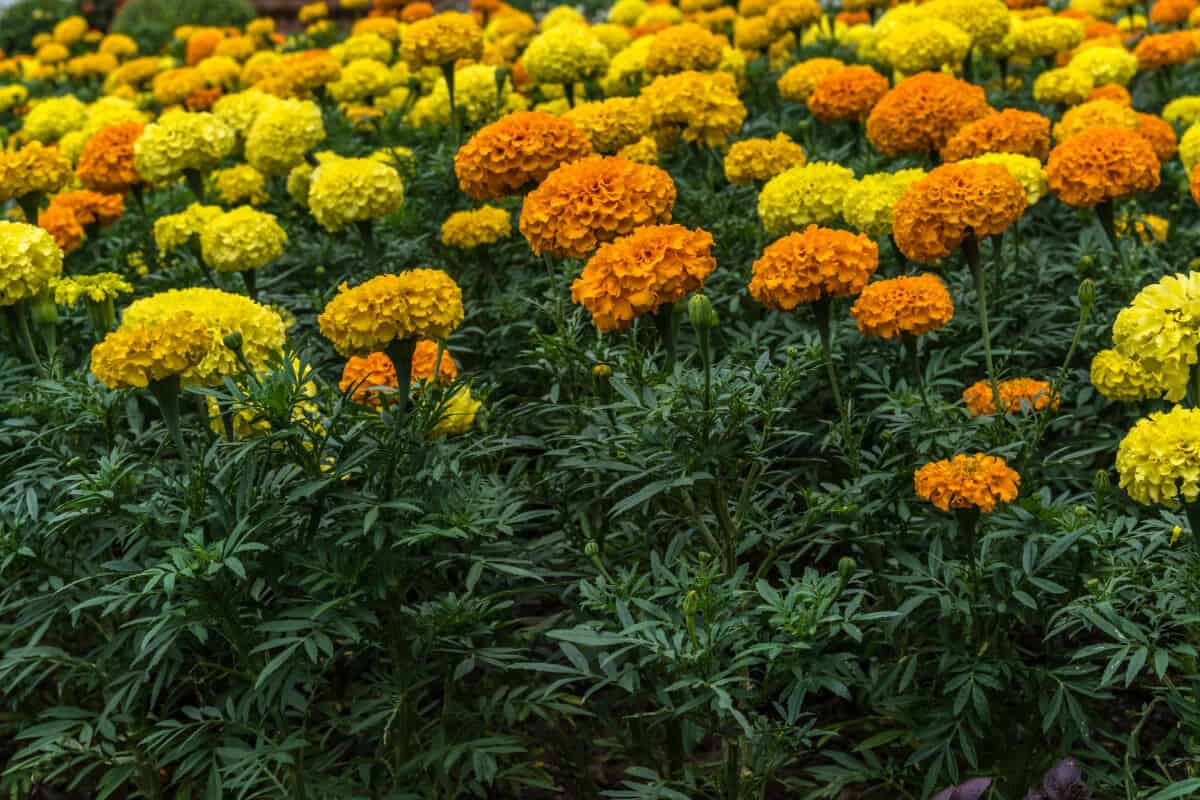
Finally, ants cannot stand the scent of these beautiful flowers. You can keep a pot of marigolds among your other plants, or plant them outside the house. They will be effective against ants as well as other insects.
Final Thoughts on Ants in Pot Plants
While ants on pot plants have several benefits such as soil aeration and the removal of harmful pests, they can also turn the situation around and cause an increase in your garden’s aphid population.
To control the situation, you can refer to the measures we have listed above. Try to start with the more natural ones as they cause the least harm to humans, animals, and nature in general.
You can also mitigate the situation by keeping your garden clean and tidy. Keep in mind to remove dead leaves where they can start building colonies.
To know more about getting rid of ants in potted plants, check out these amazing articles:
- Get Rid of Ants in Greenhouse
- Ants in Raised Beds
- Little Red Ants on Plants
- Fire Ants in Vegetable Garden
- Ants in Vegetable Garden
Sources:

